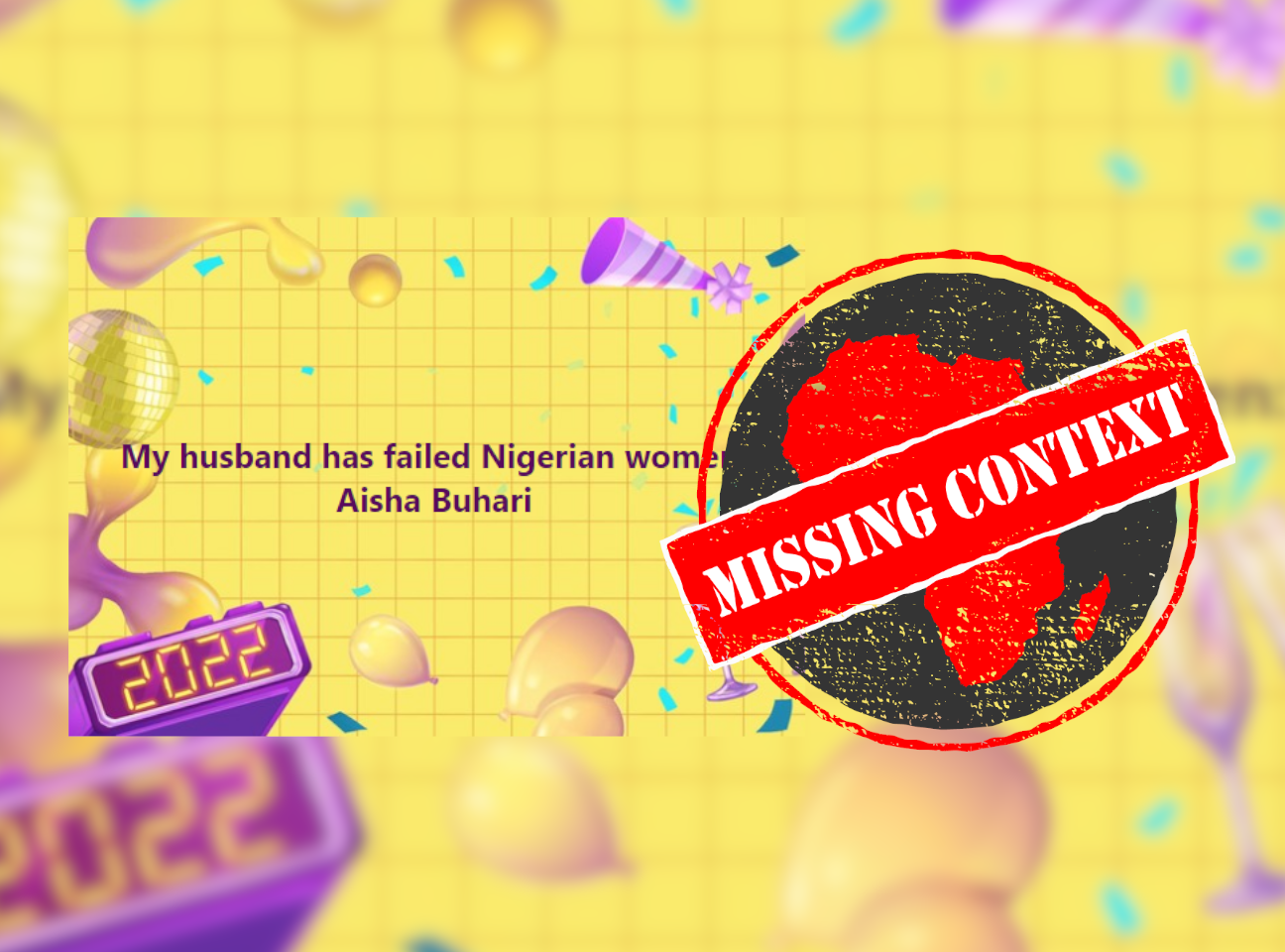Nigeria’s first lady Aisha Buhari said the president had failed Nigerian women, claims a message posted on Facebook on 18 January 2022.
Aisha Buhari is the wife of Muhammadu Buhari. She is also an activist and founder of the Aisha Buhari Foundation and Future Assured Programme.
“My husband has failed Nigerian women: Aisha Buhari,” it reads.
But did the wife of the president really say this? We checked.

Website headline puts words in first lady’s mouth
The message gives no details of when and where Aisha Buhari made the statement.
We traced the claim to a story on the website Peoples Gazette. The headline reads: “My husband has failed Nigerian women: Aisha Buhari”.
The story itself reports on her remarks while receiving Liberian vice president Jewel Howard-Taylor in Abuja on 17 January, in which she called for greater female participation in Nigerian politics and government.
But nowhere in the story does she say “My husband has failed Nigerian women.”
Instead, Peoples Gazette quotes her as saying: “From the Political Party level to Government, within the Executive and Legislature the sharing arrangement is abysmal and something must be done to change this narrative. We have to adopt better strategies to maximise elective positions and other opportunities for Nigerian women.”
News reports by Nigerian Tribune, the Cable and Pulse also covered her remarks. None of them quote her as saying “My husband has failed Nigerian women.”
If the first lady had publicly singled her husband out for criticism for the lack of female participation in Nigerian politics, it would have been widely reported. It hasn’t been.
The message – and the Peoples Gazette headline – is misleading.
Republish our content for free
For publishers: what to do if your post is rated false
A fact-checker has rated your Facebook or Instagram post as “false”, “altered”, “partly false” or “missing context”. This could have serious consequences. What do you do?
Click on our guide for the steps you should follow.
Publishers guideAfrica Check teams up with Facebook
Africa Check is a partner in Meta's third-party fact-checking programme to help stop the spread of false information on social media.
The content we rate as “false” will be downgraded on Facebook and Instagram. This means fewer people will see it.
You can also help identify false information on Facebook. This guide explains how.


Add new comment